尔时。富楼那弥多罗尼子。在大众中。即从座起。偏袒右肩。右膝着地。合掌恭敬。而白佛言。大威德世尊。善为众生。敷演如来第一义谛。世尊常推说法人中。我为第一。今闻如来微妙法音。犹如聋人。逾百步外。聆于蚊蚋。本所不见。何况得闻。佛虽宣明。令我除惑。今犹未详。斯义究竟无疑惑地。世尊。如阿难辈。虽则开悟。习漏未除。我等会中登无漏者。虽尽诸漏。今闻如来所说法音。尚纡疑悔。世尊。若复世间。一切根尘阴处界等。皆如来藏。清净本然。云何忽生山河大地。诸有为相。次第迁流。终而复始。又如来说。地水火风本性圆融。周遍法界。湛然常住。世尊。若地性遍。云何容水。水性周遍。火则不生。复云何明水火二性。俱遍虚空。不相陵灭。世尊。地性障碍。空性虚通。云何二俱。周遍法界。而我不知是义攸往。惟愿如来。宣流大慈。开我迷云。及诸大众。作是语已。五体投地。钦渴如来。无上慈诲。
尔时。世尊告富楼那。及诸会中。漏尽无学。诸阿罗汉。如来今日。普为此会。宣胜义中。真胜义性。令汝会中定性声闻。及诸一切未得二空。回向上乘阿罗汉等。皆获一乘寂灭场地。真阿练若。正修行处。汝今谛听。当为汝说。
富楼那等。钦佛法音。默然承听。
佛言。富楼那。如汝所言。清净本然。云何忽生山河大地。汝常不闻如来宣说。性觉妙明。本觉明妙。
富楼那言。唯然。世尊。我常闻佛宣说斯义。
佛言。汝称觉明。为复性明。称名为觉。为觉不明。称为明觉。
富楼那言。若此不明名为觉者。则无无明。
佛言。若无所明。则无明觉。有所非觉。无所非明。无明又非觉湛明性。性觉必明。妄为明觉。觉非所明。因明立所。所既妄立。生汝妄能。无同异中。炽然成异。异彼所异。因异立同。同异发明。因此复立无同无异。如是扰乱。相待生劳。劳久发尘。自相浑浊。由是引起尘劳烦恼。起为世界。静成虚空。虚空为同。世界为异。彼无同异。真有为法。觉明空昧。相待成摇。故有风轮执持世界。因空生摇。坚明立碍。彼金宝者。明觉立坚。故有金轮保持国土。坚觉宝成。摇明风出。风金相摩。故有火光为变化性。宝明生润。火光上蒸。故有水轮含十方界。火腾水降。交发立坚。湿为巨海。干为洲滩。以是义故。彼大海中。火光常起。彼洲滩中。江河常注。水势劣火。结为高山。是故。山石击则成炎。融则成水。土势劣水。抽为草木。是故。林薮遇烧成土。因绞成水。交妄发生。递相为种。以是因缘。世界相续。复次。富楼那。明妄非他。觉明为咎。所妄既立。明理不逾。以是因缘。听不出声。见不超色。色香味触。六妄成就。由是分开见觉闻知。同业相缠。合离成化。见明色发。明见想成。异见成憎。同想成爱。流爱为种。纳想为胎。交遘发生。吸引同业。故有因缘。生羯啰蓝。遏蒱昙等。胎卵湿化。随其所应。卵唯想生。胎因情有。湿以合感。化以离应。情想合离。更相变易。所有受业。逐其飞沉。以是因缘。众生相续。富楼那。想爱同结。爱不能离。则诸世间父母子孙。相生不断。是等则以欲贪为本。贪爱同滋。贪不能止。则诸世间卵化湿胎。随力强弱。递相吞食。是等则以杀贪为本。以人食羊。羊死为人。人死为羊。如是乃至十生之类。死死生生。互来相啖。恶业俱生。穷未来际。是等则以盗贪为本。汝负我命。我还汝债。以是因缘。经百千劫。常在生死。汝爱我心。我怜汝色。以是因缘。经百千劫。常在缠缚。唯杀盗淫。三为根本。以是因缘。业果相续。富楼那。如是三种颠倒相续。皆是觉明。明了知性。因了发相。从妄见生。山河大地。诸有为相。次第迁流。因此虚妄。终而复始。
富楼那言。若此妙觉本妙觉明。与如来心不增不减。无状忽生山河大地。诸有为相。如来今得妙空明觉。山河大地有为习漏。何当复生。
佛告富楼那。譬如迷人。于一聚落。惑南为北。此迷为复因迷而有。因悟所出。
富楼那言。如是迷人。亦不因迷。又不因悟。何以故。迷本无根。云何因迷。悟非生迷。云何因悟。
佛言。彼之迷人。正在迷时。倏有悟人指示令悟。富楼那。于意云何。此人纵迷。于此聚落。更生迷否。
否也。世尊。
富楼那。十方如来。亦复如是。此迷无本。性毕竟空。昔本无迷。似有迷觉。觉迷迷灭。觉不生迷。亦如翳人。见空中花。翳病若除。花于空灭。忽有愚人。于彼空花所灭空地。待花更生。汝观是人。为愚为慧。
富楼那言。空元无花。妄见生灭。见花灭空。已是颠倒。敕令更出。斯实狂痴。云何更名如是狂人。为愚为慧。
佛言。如汝所解。云何问言。诸佛如来妙觉明空。何当更出山河大地。又如金矿杂于精金。其金一纯。更不成杂。如木成灰。不重为木。诸佛如来菩提涅槃。亦复如是。富楼那。又汝问言。地水火风。本性圆融。周遍法界。疑水火性不相陵灭。又征虚空。及诸大地。俱遍法界。不合相容。富楼那。譬如虚空。体非群相。而不拒彼诸相发挥。所以者何。富楼那。彼太虚空。日照则明。云屯则暗。风摇则动。霁澄则清。气凝则浊。土积成霾。水澄成映。于意云何。如是殊方诸有为相。为因彼生。为复空有。若彼所生。富楼那。且日照时。既是日明。十方世界。同为日色。云何空中。更见圆日。若是空明。空应自照。云何中宵云雾之时。不生光耀。当知是明。非日非空。不异空日。观相元妄。无可指陈。犹邀空花。结为空果。云何诘其相陵灭义。观性元真。唯妙觉明。妙觉明心。先非水火。云何复问不相容者。真妙觉明。亦复如是。汝以空明。则有空现。地水火风。各各发明。则各各现。若俱发明。则有俱现。云何俱现。富楼那。如一水中。现于日影。两人同观水中之日。东西各行。则各有日。随二人去。一东一西。先无准的。不应难言。此日是一。云何各行。各日既双。云何现一。宛转虚妄。无可凭据。富楼那。汝以色空。相倾相夺于如来藏。而如来藏随为色空。周遍法界。是故。于中风动空澄。日明云暗。众生迷闷。背觉合尘。故发尘劳。有世间相。我以妙明不灭不生。合如来藏。而如来藏唯妙觉明。圆照法界。是故。于中一为无量。无量为一。小中现大。大中现小。不动道场。遍十方界。身含十方无尽虚空。于一毛端。现宝王刹。坐微尘里。转大法轮。灭尘合觉。故发真如妙觉明性。而如来藏本妙圆心。非心非空。非地非水。非风非火。非眼非耳鼻舌身意。非色。非声香味触法。非眼识界。如是乃至非意识界。非明无明。明无明尽。如是乃至非老非死。非老死尽。非苦非集。非灭非道。非智非得。非檀那。非尸罗。非毗黎耶。非羼提。非禅那。非钵剌若。非波罗蜜多。如是乃至非怛闼阿竭。非阿罗诃。三耶三菩。非大涅槃。非常非乐。非我非净。以是俱非世出世故。即如来藏元明心妙。即心即空。即地即水。即风即火。即眼即耳鼻舌身意。即色。即声香味触法。即眼识界。如是乃至即意识界。即明无明。明无明尽。如是乃至即老即死。即老死尽。即苦即集。即灭即道。即智即得。即檀那。即尸罗。即毗黎耶。即羼提。即禅那。即钵剌若。即波罗蜜多。如是乃至即怛闼阿竭。即阿罗诃。三耶三菩。即大涅槃。即常即乐。即我即净。以是即俱世出世故。即如来藏妙明心元。离即离非。是即非即。如何世间三有众生。及出世间声闻缘觉。以所知心。测度如来无上菩提。用世语言。入佛知见。譬如琴瑟箜篌琵琶。虽有妙音。若无妙指。终不能发。汝与众生。亦复如是。宝觉真心各各圆满。如我按指。海印发光。汝暂举心。尘劳先起。由不勤求无上觉道。爱念小乘。得少为足。
富楼那言。我与如来宝觉圆明。真妙净心。无二圆满。而我昔遭无始妄想。久在轮回。今得圣乘。犹未究竟。世尊。诸妄一切圆灭。独妙真常。敢问如来。一切众生。何因有妄。自蔽妙明。受此沦溺。
佛告富楼那。汝虽除疑。余惑未尽。吾以世间现前诸事。今复问汝。汝岂不闻。室罗城中。演若达多。忽于晨朝。以镜照面。爱镜中头眉目可见。嗔责己头不见面目。以为魑魅。无状狂走。于意云何。此人何因无故狂走。
富楼那言。是人心狂。更无他故。
佛言。妙觉明圆。本圆明妙。既称为妄。云何有因。若有所因。云何名妄。自诸妄想展转相因。从迷积迷。以历尘劫。虽佛发明。犹不能返。如是迷因。因迷自有。识迷无因。妄无所依。尚无有生。欲何为灭。得菩提者。如寤时人说梦中事。心纵精明。欲何因缘取梦中物。况复无因。本无所有。如彼城中。演若达多。岂有因缘。自怖头走。忽然狂歇。头非外得。纵未歇狂。亦何遗失。富楼那。妄性如是。因何为在。汝但不随分别世间。业果众生。三种相续。三缘断故。三因不生。则汝心中。演若达多。狂性自歇。歇即菩提。胜净明心。本周法界。不从人得。何藉劬劳。肯綮修证。譬如有人。于自衣中。系如意珠。不自觉知。穷露他方。乞食驰走。虽实贫穷。珠不曾失。忽有智者指示其珠。所愿从心。致大饶富。方悟神珠。非从外得。
即时。阿难在大众中。顶礼佛足。起立白佛。世尊。现说杀盗淫业。三缘断故。三因不生。心中达多。狂性自歇。歇即菩提。不从人得。斯则因缘。皎然明白。云何如来顿弃因缘。我从因缘。心得开悟。世尊。此义何独我等年少有学声闻。今此会中。大目犍连。及舍利弗。须菩提等。从老梵志。闻佛因缘。发心开悟。得成无漏。今说菩提不从因缘。则王舍城拘舍黎等。所说自然。成第一义。惟垂大悲。开发迷闷。
佛告阿难。即如城中。演若达多。狂性因缘。若得灭除。则不狂性。自然而出。因缘自然。理穷于是。阿难。演若达多。头本自然。本自其然。无然非自。何因缘故。怖头狂走。若自然头。因缘故狂。何不自然。因缘故失。本头不失。狂怖妄出。曾无变易。何藉因缘。本狂自然。本有狂怖。未狂之际。狂何所潜。不狂自然。头本无妄。何为狂走。若悟本头。识知狂走。因缘自然。俱为戏论。是故。我言三缘断故。即菩提心。菩提心生。生灭心灭。此但生灭。灭生俱尽。无功用道。若有自然。如是则明。自然心生。生灭心灭。此亦生灭。无生灭者。名为自然。犹如世间诸相杂和。成一体者。名和合性。非和合者。称本然性。本然非然。和合非合。合然俱离。离合俱非。此句方名无戏论法。菩提涅槃。尚在遥远。非汝历劫辛勤修证。虽复忆持。十方如来十二部经。清净妙理。如恒河沙。只益戏论。汝虽谈说因缘自然。决定明了。人间称汝。多闻第一。以此积劫多闻熏习。不能免离摩登伽难。何因待我佛顶神咒。摩登伽心淫火顿歇。得阿那含。于我法中。成精进林。爱河干枯。令汝解脱。是故。阿难。汝虽历劫忆持如来秘密妙严。不如一日修无漏业。远离世间憎爱二苦。如摩登伽。宿为淫女。由神咒力。锁其爱欲。法中今名性比丘尼。与罗睺罗母。耶输陀罗。同悟宿因。知历世因。贪爱为苦。一念熏修无漏善故。或得出缠。或蒙授记。如何自欺。尚留观听。
阿难及诸大众。闻佛示诲。疑惑销除。心悟实相。身意轻安。得未曾有。重复悲泪。顶礼佛足。长跪合掌。而白佛言。无上大悲。清净宝王。善开我心。能以如是种种因缘。方便提奖。引诸沉冥。出于苦海。世尊。我今虽承如是法音。知如来藏。妙觉明心。遍十方界。含育如来十方国土。清净宝严妙觉王刹。如来复责多闻无功。不逮修习。我今犹如旅泊之人。忽蒙天王赐以花屋。虽获大宅。要因门入。惟愿如来。不舍大悲。示我在会诸蒙暗者。捐舍小乘。必获如来无余涅槃。本发心路。令有学者。从何摄伏畴昔攀缘。得陀罗尼。入佛知见。作是语已。五体投地。在会一心。伫佛慈旨。
尔时。世尊哀愍会中缘觉声闻。于菩提心未自在者。及为当来佛灭度后。末法众生发菩萨心。开无上乘妙修行路。宣示阿难。及诸大众。汝等决定发菩提心。于佛如来妙三摩提。不生疲倦。应当先明发觉初心。二决定义。云何初心二义决定。阿难。第一义者。汝等若欲捐舍声闻。修菩萨乘。入佛知见。应当审观因地发心。与果地觉。为同为异。阿难。若于因地。以生灭心为本修因。而求佛乘。不生不灭。无有是处。以是义故。汝当照明诸器世间。可作之法。皆从变灭。阿难。汝观世间可作之法。谁为不坏。然终不闻烂坏虚空。何以故。空非可作。由是始终无坏灭故。则汝身中。坚相为地。润湿为水。暖触为火。动摇为风。由此四缠。分汝湛圆妙觉明心。为视为听。为觉为察。从始入终。五迭浑浊。云何为浊。阿难。譬如清水。清洁本然。即彼尘土灰沙之伦。本质留碍。二体法尔。性不相循。有世间人。取彼土尘。投于净水。土失留碍。水亡清洁。容貌汩然。明之为浊。汝浊五重。亦复如是。阿难。汝见虚空遍十方界。空见不分。有空无体。有见无觉。相织妄成。是第一重。名为劫浊。汝身现抟四大为体。见闻觉知。壅令留碍。水火风土。旋令觉知。相织妄成。是第二重。名为见浊。又汝心中忆识诵习。性发知见。容现六尘。离尘无相。离觉无性。相织妄成。是第三重。名烦恼浊。又汝朝夕生灭不停。知见每欲留于世间。业运每常迁于国土。相织妄成。是第四重。名众生浊。汝等见闻元无异性。众尘隔越。无状异生。性中相知。用中相背。同异失准。相织妄成。是第五重。名为命浊。阿难。汝今欲令见闻觉知。远契如来常乐我净。应当先择死生根本。依不生灭圆湛性成。以湛旋其虚妄灭生。伏还元觉。得元明觉。无生灭性。为因地心。然后圆成果地修证。如澄浊水。贮于净器。静深不动。沙土自沉。清水现前。名为初伏客尘烦恼。去泥纯水。名为永断根本无明。明相精纯。一切变现。不为烦恼。皆合涅槃清净妙德。第二义者。汝等必欲发菩提心。于菩萨乘。生大勇猛。决定弃捐诸有为相。应当审详烦恼根本。此无始来发业润生。谁作谁受。阿难。汝修菩提。若不审观烦恼根本。则不能知虚妄根尘。何处颠倒。处尚不知。云何降伏。取如来位。阿难。汝观世间解结之人。不见所结。云何知解。不闻虚空被汝堕裂。何以故。空无相形。无结解故。则汝现前眼耳鼻舌。及与身心。六为贼媒。自劫家宝。由此无始众生世界。生缠缚故。于器世间。不能超越。阿难。云何名为众生世界。世为迁流。界为方位。汝今当知东西南北。东南西南。东北西北。上下为界。过去未来。现在为世。位方有十。流数有三。一切众生。织妄相成。身中贸迁。世界相涉。而此界性。设虽十方。定位可明。世间只目东西南北。上下无位。中无定方。四数必明。与世相涉。三四四三。宛转十二。流变三迭。一十百千。总括始终。六根之中。各各功德。有千二百。阿难。汝复于中。克定优劣。如眼观见。后暗前明。前方全明。后方全暗。左右傍观。三分之二。统论所作。功德不全。三分言功。一分无德。当知眼惟八百功德。如耳周听。十方无遗。动若迩遥。诤无边际。当知耳根。圆满一千二百功德。如鼻嗅闻。通出入息。有出有入。而阙中交。验于耳根。三分阙一。当知鼻惟八百功德。如舌宣扬。尽诸世间出世间智。言有方分。理无穷尽。当知舌根。圆满一千二百功德。如身觉触。识于违顺。合时能觉。离中不知。离一合双。验于舌根。三分阙一。当知身惟八百功德。如意默容。十方三世。一切世间出世间法。惟圣与凡。无不包容。尽其涯际。当知意根。圆满一千二百功德。阿难。汝今欲逆生死欲流。返穷流根。至不生灭。当验此等六受用根。谁合谁离。谁深谁浅。谁为圆通。谁不圆满。若能于此悟圆通根。逆彼无始织妄业流。得循圆通。与不圆根。日劫相倍。我今备显六湛圆明。本所功德。数量如是。随汝详择其可入者。吾当发明。令汝增进。十方如来。于十八界。一一修行。皆得圆满无上菩提。于其中间。亦无优劣。但汝下劣。未能于中圆自在慧。故我宣扬。令汝但于一门深入。入一无妄。彼六知根。一时清净。
阿难白佛言。世尊。云何逆流深入一门。能令六根一时清净。
佛告阿难。汝今已得须陀洹果。已灭三界众生世间见所断惑。然犹未知。根中积生无始虚习。彼习要因修所断得。何况此中生住异灭。分剂头数。今汝且观现前六根。为一为六。阿难。若言一者。耳何不见。目何不闻。头奚不履。足奚无语。若此六根决定成六。如我今会。与汝宣扬微妙法门。汝之六根。谁来领受。
阿难言。我用耳闻。
佛言。汝耳自闻。何关身口。口来问义。身起钦承。是故。应知非一终六。非六终一。终不汝根元一元六。阿难。当知是根非一非六。由无始来。颠倒沦替。故于圆湛。一六义生。汝须陀洹。虽得六销。犹未亡一。如太虚空。参合群器。由器形异。名之异空。除器观空。说空为一。彼太虚空。云何为汝成同不同。何况更名是一非一。则汝了知六受用根。亦复如是。由明暗等二种相形。于妙圆中。粘湛发见。见精映色。结色成根。根元目为清净四大。因名眼体。如蒲萄朵。浮根四尘。流逸奔色。由动静等二种相击。于妙圆中。粘湛发听。听精映声。卷声成根。根元目为清净四大。因名耳体。如新卷叶。浮根四尘。流逸奔声。由通塞等二种相发。于妙圆中。粘湛发嗅。嗅精映香。纳香成根。根元目为清净四大。因名鼻体。如双垂爪。浮根四尘。流逸奔香。由恬变等二种相参。于妙圆中。粘湛发尝。尝精映味。绞味成根。根元目为清净四大。因名舌体。如初偃月。浮根四尘。流逸奔味。由离合等二种相摩。于妙圆中。粘湛发觉。觉精映触。搏触成根。根元目为清净四大。因名身体。如腰鼓颡。浮根四尘。流逸奔触。由生灭等二种相续。于妙圆中。粘湛发知。知精映法。览法成根。根元目为清净四大。因名意思。如幽室见。浮根四尘。流逸奔法。阿难。如是六根。由彼觉明。有明明觉。失彼精了。粘妄发光。是以汝今离暗离明。无有见体。离动离静。元无听质。无通无塞。嗅性不生。非变非恬。尝无所出。不离不合。觉触本无。无灭无生。了知安寄。汝但不循。动静合离。恬变通塞。生灭暗明。如是十二诸有为相。随拔一根。脱粘内伏。伏归元真。发本明耀。耀性发明。诸余五粘。应拔圆脱。不由前尘所起知见。明不循根。寄根明发。由是六根互相为用。阿难。汝岂不知。今此会中。阿那律陀。无目而见。跋难陀龙。无耳而听。殑伽神女。非鼻闻香。骄梵钵提。异舌知味。舜若多神。无身有触。如来光中。映令暂现。既为风质。其体元无。诸灭尽定。得寂声闻。如此会中。摩诃迦叶。久灭意根。圆明了知。不因心念。阿难。今汝诸根若圆拔已。内莹发光。如是浮尘。及器世间。诸变化相。如汤销冰。应念化成无上知觉。阿难。如彼世人聚见于眼。若令急合。暗相现前。六根黯然。头足相类。彼人以手循体外绕。彼虽不见。头足一辨。知觉是同。缘见因明。暗成无见。不明自发。则诸暗相永不能昏。根尘既销。云何觉明。不成圆妙。
阿难白佛言。世尊。如佛说言。因地觉心。欲求常住。要与果位名目相应。世尊。如果位中。菩提涅槃。真如佛性。庵摩罗识。空如来藏。大圆镜智。是七种名。称谓虽别。清净圆满。体性坚凝。如金刚王。常住不坏。若此见听。离于暗明。动静通塞。毕竟无体。犹如念心。离于前尘。本无所有。云何将此毕竟断灭。以为修因。欲获如来七常住果。世尊。若离明暗。见毕竟空。如无前尘。念自性灭。进退循环。微细推求。本无我心。及我心所。将谁立因。求无上觉。如来先说湛精圆常。违越诚言。终成戏论。云何如来真实语者。惟垂大慈。开我蒙吝。
佛告阿难。汝学多闻。未尽诸漏。心中徒知颠倒所因。真倒现前。实未能识。恐汝诚心犹未信伏。吾今试将尘俗诸事。当除汝疑。即时。如来敕罗睺罗。击钟一声。问阿难言。汝今闻否。
阿难大众俱言。我闻。
钟歇无声。佛又问言。汝今闻否。
阿难大众俱言。不闻。
时。罗睺罗。又击一声。
佛又问言。汝今闻否。
阿难大众又言。俱闻。
佛问阿难。汝云何闻。云何不闻。
阿难大众俱白佛言。钟声若击。则我得闻。击久声销。音响双绝。则名无闻。
如来又敕罗睺击钟。问阿难言。尔今声否。
阿难言。声。
少选声销。佛又问言。尔今声否。
阿难大众答言。无声。
有顷。罗睺更来撞钟。佛又问言。尔今声否。
阿难大众俱言。有声。
佛问阿难。汝云何声。云何无声。
阿难大众俱白佛言。钟声若击。则名有声。击久声销。音响双绝。则名无声。
佛语阿难。及诸大众。汝今云何自语矫乱。
大众阿难。俱时问佛。我今云何名为矫乱。
佛言。我问汝闻。汝则言闻。又问汝声。汝则言声。惟闻与声。报答无定。如是云何不名矫乱。阿难。声销无响。汝说无闻。若实无闻。闻性已灭。同于枯木。钟声更击。汝云何知。知有知无。自是声尘。或无或有。岂彼闻性为汝有无。闻实云无。谁知无者。是故。阿难。声于闻中。自有生灭。非为汝闻声生声灭。令汝闻性为有为无。汝尚颠倒。惑声为闻。何怪昏迷。以常为断。终不应言。离诸动静。闭塞开通。说闻无性。如重睡。人眠熟床枕。其家有人于彼睡时。捣练舂米。其人梦中。闻舂捣声。别作他物。或为击鼓。或复撞钟。即于梦时。自怪其钟为木石响。于时忽寤。遄知杵音。自告家人。我正梦时。惑此舂音将为鼓响。阿难。是人梦中。岂忆静摇开闭通塞。其形虽寐。闻性不昏。纵汝形销。命光迁谢。此性云何为汝销灭。以诸众生从无始来。循诸色声。逐念流转。曾不开悟性净妙常。不循所常。逐诸生灭。由是生生杂染流转。若弃生灭。守于真常。常光现前。尘根识心应时销落。想相为尘。识情为垢。二俱远离。则汝法眼应时清明。云何不成无上知觉。
Then Purnamaitreyaniputra arose from his seat in the midst of the great assembly, uncovered his right shoulder, knelt on his right knee, put his palms together respectfully, and said to the Buddha, ”The most virtuous and awe-inspiring Bhagavan has for the sake of beings expounded the primary truth of the Tathagata with remarkable eloquence. Bhagavan often singles me out as the foremost among speakers of the Dharma. But now when I hear the Tathagata's wonderful, subtle expressions of the Dharma, I am like a deaf person who at a distance of more than a hundred paces tries to hear a mosquito, which in fact cannot be seen, let alone heard. Although the Buddha's clear expressions have succeeded in dispelling our doubts, we still have not fathomed the ultimate meaning that could enable us to rise above all delusions. Those who are like Ananda, although enlightened, have not yet ended their outflows of their habits. Those of us present in the assembly who have reached the stage of no outflows, despite having ended our outflows, still wonder about the Dharma spoken by the Tathagata today.
“Bhagavan, if all the mundane sense organs, sense objects, skandhas, places, and realms are the Treasury of the Tathagata, why, in that fundamental purity, do the mountains, rivers, great earth and all other conditioned phenomena suddenly arise, cyclically change and flow, end, and then begin again?
”Moreover, the Tathagata said that the basic natures of earth, water, fire, and wind are perfectly fused, pervade the Dharma Realm, and are tranquil and eternal. World Honored One, if the nature of earth is pervasive, how could it contain water? If the nature of water is pervasive, fire would not arise. Further, how do you explain that the natures of fire and water can each pervade empty space without displacing one another? Bhagavan, the nature of earth is solid; the nature of emptiness is vacuous. How can they both pervade the Dharma Realm? I don't know what this doctrine is aiming at. I only hope the Tathagata will compassionately explain in order to clear the clouds of confusion that engulf all of us in this great assembly.“
After saying that, he made a full prostration and respectfully and expectantly awaited the Tathagata's unsurpassed compassionate instruction.
The Bhagavan then told Purna and all the Arhats in the assembly who had ended their outflows and had reached the level beyond study, ”Today the Tathagata will explain in depth the truest most supreme meaning. May those of you in the assembly who are Hearers or Arhats of a fixed nature who have not yet realized the two kinds of emptiness and all who are dedicated to the Superior Vehicle reach the tranquility of the One Vehicle, the true aranya, the proper place of cultivation. Listen attentively and I will explain it for you.“
Purna and the others listened quietly, respecting the Buddha's expression of Dharma.
The Buddha said, ”Purna, you have asked why in fundamental purity the mountains, the rivers, and the great earth suddenly arise. Have you not often heard the Tathagata expound upon the wonderful light of the enlightened nature and the bright wonder of fundamental enlightenment?“
Purna said, ”Yes, Bhagavan, I have often heard the Buddha expound upon that subject.“
The Buddha said, ”You speak of understanding enlightenment; does the nature understand and is that called enlightenment? Or does enlightenment initially lack understanding and so you speak of understanding enlightenment?“
Purna said, ”If a lack of understanding is called enlightenment, then there would be no understanding at all.“
The Buddha said, ”If there were no understanding at all, then there could be no understanding of enlightenment. If understanding is added, then that is not enlightenment. If understanding is not added, then there's no understanding. But a lack of understanding or ignorance is not the lucid bright nature of enlightenment. The nature of enlightenment certainly includes understanding. It's redundant to speak of understanding enlightenment. Enlightenment is not a kind of understanding. Understanding sets up an objective realm. Once that objective realm is set up, your false subjective state arises.
“Where there was neither sameness nor difference, suddenly difference appears. What differs from that difference, becomes sameness. Once sameness and difference mutually arise, and due to them, what is neither the same nor different is created. This turmoil eventually brings about weariness. Prolonged weariness produces defilement. The combination of these in a murky turbidity creates afflictions with respect to wearisome defilements. The world comes about through this arising; the lack of any arising becomes emptiness. Emptiness is sameness; the world, difference. Those that have neither difference nor sameness become conditioned dharmas.
”The understanding added to enlightenment creates a light that stands in mutual opposition with the darkness of emptiness. As a result, wind wheels that support the world come into being. The tension between emptiness and that light creates movement. The false, persistent light congeals into a solidity that becomes metal. A lack of enlightenment nurtures that persistence and causes metal wheels to secure all lands. That tenacious unenlightened state creates metal, while the fluctuations of light cause the wind to rise. The friction between wind and metal creates fire, which is mutable in nature. Metal produces moisture, which causes flame to rise from the fire. Thus the wheel of water that encompasses all realms in the ten directions comes about. Fire rises and water falls, and the combination becomes tenacious. What is wet becomes the oceans and seas; what is dry becomes the continents and islands. Because of this, fire often rises up in the oceans, and on the continents the streams and rivers ever flow. When the power of water is less then that of fire, high mountains result. That is why mountain rocks give off sparks when struck, and become liquid when melted. When the power of earth is less then that of water, the outcome is grasses and trees. That is why the vegetation in groves and marshes turns to ashes when burned and oozes water when twisted. The interaction of that false dichotomy in turn creates these elements as seeds and from these causes and conditions comes the continuity of the world.
“Moreover, Purna, the false understanding is none other than the mistake of adding understanding to enlightenment. After the falseness of the objective realm is established, the subjective understanding cannot transcend it. Due to that, hearing does not go beyond sound, and seeing does not surpass form. Forms, smells, tastes, objects of touch and the others of the six falsenesses are realized. Because of them there is a division into seeing, sensation, hearing, and knowing. Similar karma binds beings together; union and separation bring about their transformations.
”The manifastation of light is caused by false view and ignorance. Competitive views generate hatred; compatible views create love. The flow of love becomes a seed; the potential foetus is taken in and conception occurs. When intercourse takes place, beings with similar karma are drawn in. From these causes and conditions, the kalaka, arbuda, and other foetal stages evolve. The womb-born, egg-born, moisture-born, and transformation-born beings come about in response: the egg-born come from thought, the womb-born are due to emotion, the moisture-born arise from union, and transformations occur through separation. Emotion, thought, union, and separation go through further changes, and the maturation of such karma causes one to rise or sink. From such causes and conditions comes the continuity of beings.
“Purna, thought and love become bound together so that people love each other and cannot bear to be apart. As a result, ceaseless successive births of parents, children, and grandchildren occur in this world. And the basis for all that is desire and greed.
”Greed and emotional love feed on one another until the greed becomes insatiable. The result of that in this world is the tendency of egg-born, womb-born, moisture-born, and transformation-born beings to devour one another to the extent that their strength permits. The basis for all that is killing and greed.
“Suppose a person eats a sheep. The sheep dies and becomes a person; the person dies and becomes a sheep, The same applies in all rebirths among the ten categories. Through death after death and birth after birth, they eat each other. The evil karma one is born with continues to the bounds of the future. The basis for all that is stealing and greed.
”‘You owe me a life; I must repay my debt to you.’ Due to such causes and conditions we pass through hundreds of thousands of eons in sustained cycle of birth and death. ‘You love my mind; I adore your good looks.’ Due to such causes and conditions we pass through hundreds of thousands of eons in sustained mutual entanglement. Killing, stealing, and lust are the basic roots. From such causes and conditions comes the continuity of karma and retribution.
“Purna, these three kinds of upside-down continuity come from adding understanding to enlightenment. That lack of understanding generates an internal awareness which gives rise to external phenomena. Both are born of false views. From this falseness the mountains, the rivers, the great earth, and all conditioned phenomena unfold themselves in a succession that recurs in endless cycles.”
Purna said, “If this wonderful enlightenment, the wonderful awareness of fundamental enlightenment, which is neither greater than nor less than the mind of the Tathagata, abruptly brings forth the mountains, the rivers, and the great earth, and all conditioned phenomena, then now that the Tathagata has attained the wonderful emptiness of clear enlightenment, will the mountains, the rivers, the great earth, and all conditioned habitual outflows arise ever again?”
The Buddha said to Purna, “If a person living in a village were confused about directions, mistaking south for north, would that confusion be the result of confusion or of awareness?”
Purna said, “His confusion would be the result of neither. Why not? Confusion is fundamentally baseless, so how could anything arise because of it? And as awareness does not produce confusion, how could confusion arise out of it?”
The Buddha said, “If someone who knows the directions points them out to the confused person, then once the person who was confused becomes aware, do you suppose, Purna, that he could lose his sense of direction again in that village?”
“No, Bhagavan.”
“Purna, the Tathagatas of the ten directions are the same way. Confusion is groundless and ultimately empty in nature. In the past, there basically was no confusion. It merely seemed as if there were confusion and enlightenment. When the delusion about confusion and enlightenment is ended, enlightenment will not give rise to confusion. Consider the person who, because of cataracts, saw flowers in space. Once the cataracts were removed, the flowers in space disappeared. Were he to rush to the spot where the flowers disappeared and wait for them to reappear, would you consider that person to be stupid or wise?”
Purna said, “Originally there weren't any flowers in space. It was through a seeing disability that they appeared and disappeared. To see the disappearance of the flowers in space is already a distortion. To wait for them to reappear is sheer madness. Why bother to determine further if such a person is stupid or wise?”
The Buddha said, “Since you explain it that way, why do you ask if the clear emptiness of wonderful enlightenment can once again give rise to the mountains, the rivers, and the great earth? Consider a piece of ore containing gold and other metals mixed together. Once the pure gold is extracted it will never become ore again. Consider wood that has burnt to ashes; it will never become wood again. The Bodhi and Nirvana of all Buddhas, the Tathagatas, are the same way.
”Purna, you also asked whether the natures of water and fire would not destroy each other if the natures of earth, water, fire, and wind were all perfectly fused and pervaded the Dharma Realm, and whether space and the great earth would not be incompatible if both pervaded the Dharma Realm.
“Purna, consider space: its substance is not the various phenomena, yet that does not prevent all phenomena from being included within it. How do we know that? Purna, empty space is bright on a sunny day, and dark when the sky is cloudy. It moves when the wind rises, it is fresh when the sky clears. It is turbid and hazy when the weather is foul, it is obscure when a dust storm breaks out. It casts a bright reflection on a pool of clear water. Do you think these conditioned phenomena come into existence at different places? Are they created from these conditions themselves or is their origin in space. If they arise from these conditions, Purna, then on a sunny day, since the sun is bright, all worlds of the ten directions should take on the form of the sun. Then why, on a sunny day do we see the round sun in the sky? If space is bright, space itself should shine. Then why, when there is a covering of clouds and fog, is no light evident? You should know that the brightness is not the sun, nor space nor other than the space or the sun. Contemplate how phenomena are ultimately false and cannot be verified. They are like flowers conjured up in space that cannot bear fruit. Why, then, investigate how such phenomena appear and disappear? Contemplate how the nature is ultimately truth and is solely the wonderful enlightened brightness. That wonderful enlightened bright mind originally was neither water nor fire. Why, then, ask about incompatibility?
”The truly wonderful enlightened brightness is the same way. You recognize space, and space appears. Recognizing earth, water, fire, and wind, each will appear. If all are recognized, all will appear. How can they all appear? Purna, consider the sun's reflection as it appears in a single body of water. Two people gaze at it, both at the same time. Then one person walks east and the other walks west. Each person, still looking at the water will see a sun go along with him, one to the east, one to the west, while there seems to be no fixed direction for the movement of the sun's reflection. Don't belabor the question and ask, ‘If there is one sun, how can it follow both people? Or if the sun is double, why does only one appear in the sky?’ This is just revolving in falseness, because such things cannot be proven.
“Purna, you think that form and emptiness overcome and destroy one another in the Treasury of the Tathagata. Thus the Treasury of the Tathagata appears to you as form and emptiness throughout the Dharma Realm. And so, within it the wind moves, emptiness is still, the sun is bright, and the clouds are dark. The reason for this lies in the delusion of beings who have turned their backs on enlightenment and joined with the defiling dust. Thus, the wearisome defilements come into being and mundane phenomena exist.
”Based on wonderful understanding that neither ceases to be nor comes into being, I unite with the Treasury of the Tathagata. Thus the Treasury of the Tathagata is the unique and wonderful enlightened brightness which completely illumines the Dharma Realm. That is why, within it, the one is limitless; the limitless is one. In the small appears the great; in the great appears the small. Unmoving in the Bodhimanda, yet pervading the ten directions, my body contains the ten directions and endless emptiness. On the tip of a single hair appear the lands of the Jewelled Kings. Sitting in a mote of dust, I turn the great Dharma wheel, put an end to defiling dust, and unite with enlightenment, so that true suchness, the wonderful enlightened bright nature, comes into being.
“The Treasury of the Tathagata is the fundamental, wonderful, perfect mind. It is not the mind, nor emptiness, nor earth, nor water, nor wind, nor fire; it is not the eyes, nor the ears, the nose, the tongue, the body, or the mind. It is not form, nor sounds, smells, tastes, objects of touch, or dharmas. It is not the realm of eye-consciousness, nor any other, up to and including the realm of mind-consciousness. It is not understanding, nor ignorance, nor the ending of understanding or ignorance, nor any other, up to and including old age and death and the ending of old age and death. It is not suffering, nor accumulation, nor extinction, nor the Way. It is neither knowing nor attaining. It is not Dana, nor Shila, nor Virya, nor Kshanti, nor Dhyana, nor Prajna, nor Paramita, nor any other: It is not the Tathagata, nor the Arhats, nor Samyaksambodhi, nor Parinirvana, nor Eternity, nor Bliss, nor True Self, nor Purity.
”Therefore, it is neither mundane nor transcendental, since the Treasury of the Tathagata is the wonder of the mind's primal understanding. It is the mind; it is emptiness, it is earth; it is water; it is wind; it is fire; it is the eyes; it is the ears; the nose, the tongue, the body, and the mind. It is form; it is sounds; smells, tastes, objects of touch, and dharmas. It is the realm of eye-consciousness, and so forth, up to and including the realm of mind-consciousness. It is understanding and ignorance and the ending of understanding and ignorance, and so forth up to and including old age and death and the ending of old age and death. It is suffering; it is accumulation; it is extinction; and it is the Way. It is knowing and attaining. It is Dana; it is Shila; it is Virya; it is Kshanti; it is Dhyana; it is Prajna; and it is Paramita, and so forth, up to and including the Tathagata, the Arhats, Samyaksambodhi, Parinirvana, Eternity, Bliss, True Self, and Purity.
“It is both mundane and transcendental, since the Treasury of the Tathagata is the wonderful understanding of the primal mind. It is apart from identity and negation. It is identity and negation.
”How can beings in the three realms of mundane existence and the Hearers and Those Enlightened to Conditions at the level of transcendental existence make suppositions about the unsurpassed Bodhi of the Tathagata with the minds that they know of, or enter the knowledge and vision of the Buddha through the medium of worldly language? Consider lutes, flutes, and guitars. Although those can make wonderful sounds, but if there are no skilled fingers to play them, their music will never come forth. You and all beings are the same way. The precious, enlightened true mind is perfect in everyone. I apply pressure and the Ocean Impression emits light; you move your mind, and the wearisome defilements spring up. That happens all because you do not diligently seek the unsurpassed enlightened Way, but are fond of the lesser vehicle and are satisfied with little attainment.“
Purna said, ”My mind and the Tathagata's true wonderful pure mind are no different in their perfect precious enlightenment and complete understanding. But I have long been plagued with beginningless false thoughts and have long endured the cycle of rebirth. As of yet my attainment in the sagely vehicle is not ultimate. Bhagavan has completely ended all falseness and attained wonderful eternal truth. I venture to ask the Thus Come One why all beings exist in falseness and conceal their own wonderful understanding, so that they keep drowning in this deluge?“
The Buddha said to Purna, ”Although you have cast off doubts, you still have not ended residual delusions. I will now question you about a mundane event. Did you hear about Yajnadatta from Shravasti who on impulse one morning held a mirror to his face and fell in love with the head in the mirror? He gazed at the eyes and eyebrows but got angry because he could not see his own face. He decided he must be a mountain or river sprite, lost control, and ran madly about. What do you think? Why did this person set out on a mad cause for no reason?“
Purna said, ”That person was insane. There's no other reason.“
The Buddha said, ”What reason can you give for saying that the wonderful enlightened bright perfection, the fundamentally perfect bright wonder is false? If there is a reason, then how do you define false? All of your own false thinking becomes in turn the cause for more. From confusion you accumulate confusion through eon after eon; although the Buddha is aware of it, he cannot counteract it. From such confused causes, the cause of confusion perpetuates itself. When one realizes that confusion has no cause, the falseness becomes baseless. Since it never arose, why would you hope for its end? One who obtains Bodhi is like a person who awakens to tell of the events in a dream; since his mind will remain awake and clear, why would he want to hold onto the things in a dream?
“This is especially true for things that lack a cause and are basically non-existent, such as Yajnadatta's situation that day in the city. Was there any reason why he became fearful for his head and went running about? If his madness had suddenly ceased, he still wouldn't get his head back from someplace else outside; and so before his madness ceased, how could his head have been lost? Purna, falseness is the same way. How can it exist? You only need not follow discriminations about the three kinds of continuity of the world, beings, and karmic retributions. By cutting off those three conditions, the causes will not arise. Then the madness, like Yajnadatta's, will cease by itself. Once it ceases, Bodhi appears. The supreme, pure, bright mind originally pervades the Dharma Realm. It is not something obtained from anyone else. Why, then, toil at cultivation making yourself bone-tired trying to gain certification? Consider a person who has a wish-fulfilling pearl sewn into his clothing but does not know it. Poverty-stricken and ragged, he roams around begging for food and always on the move. Although he is indeed destitute, the pearl is never lost. Suddenly a wise person points out the pearl: then all his wishes are fulfilled, he obtains great wealth, and he realizes that the pearl did not come from somewhere outside.”
Then from among the great assembly, Ananda bowed at the Buddha's feet, stood, and said to the Buddha, “Bhagavan has just explained about the karma of killing, stealing and lust: when the three conditions are cut off, the three causes do not arise. Then the madness, like Yajnadatta's, will cease by itself, and once it ceases, Bodhi appears. It is not something obtained from anyone else. Those clearly are causes and conditions; why, then, does the Tathagata abruptly reject causes and conditions? My enlightenments have come about through causes and conditions. Bhagavan, that is not only true of those of us who are young in years, or who are Hearers still in the process of learning. Mahamaudgalyayana, Shariputra, and Subhuti, and others who followed the elder Brahmans, became enlightened and obtained no outflows upon hearing the Buddha expound upon causes and conditions. Now you say that Bodhi does not come from causes and conditions. That would make the spontaneity that Maskari Goshaliputra and others advocated in Rajagriha the primary meaning! I only hope that the Greatly Kind One will dispel my confusion.”
The Buddha said to Ananda, “Let us take the case of Yajnadatta in the city: if the causes and conditions of his madness cease, the nature that is not mad will spontaneously come forth. The entire principle of spontaneity and causes and conditions is nothing more than that.
”Ananda, Yajnadatta's head was naturally there; it was a natural part of him. There was never a time when it was not. Why, then, did he suddenly fear that he had no head and start running about madly?
“If he naturally had a head and went mad due to causes and conditions, would it not be just as natural for him to lose his head due to causes and conditions? Basically his head was never lost. The madness and fear arose from falseness. There was never any change that took place. Why, then, belabor the point about causes and conditions?
”Had the madness been his natural state, the madness and fear would be fundamental. Before he went mad, then, where was his madness hidden?
“Had the madness not been his natural state, and his head in fact not lost, why did he run about in a state of madness?
”If you realize that you have a head and recognize the madness of your pursuit, then both spontaneity and causes and conditions become idle theories. That is why I say that once the three conditions cease to be, the Bodhi-Heart appears. The arising of the Bodhi-Heart and the ending of the mind subject to arising and ceasing itself imply arising and ceasing.
“The ending of both arising and ceasing is the effortless Way. If there is spontaneity then clearly the thought of spontaneity must arise and the mind subject to arising and ceasing end: but that is still a case of arising and ceasing. To call the lack of arising and ceasing spontaneity would be like saying that a combination of mundane phenomena that form a single substance are mixed and united in nature, and that everything not mixed and united is spontaneous in nature. Spontaneity is not natural, and mixing and uniting lack unifying qualities. Spontaneity and unity alike must be abandoned, and both their abandonment and their existence cease to be. Achieving that would be no idle theory.
”Bodhi and Nirvana are still so far away that you must undoubtedly pass through eons of bitterness and diligence before you cultivate them and are certified. You can memorize the twelve divisions of the Sutras spoken by the Buddhas of the ten directions and their pure, wonderful principles as many as the sands of the Ganges river, but that only aids your idle theorizing. Although you can discuss causes and conditions and spontaneity and understand them perfectly clearly, and people refer to you as the one foremost in learning, still, the eons upon eons you have spent saturating yourself with learning, did not help you avoid the trouble with Matangi's daughter. Why did you have to wait for me to use the holy Mantra of the Buddha's Crown to put out the fire of lust in Matangi's daughter's heart, causing her to attain the position of an Anagamin and join a vigorous group in my Dharma assembly, drying up the river of emotional love in her and setting you free?
“Therefore, Ananda, your ability to intellectually master the Tathagata's wonderful secret teachings for eons upon eons is not as good as a single day of non-outflow cultivation that is intent upon quitting the two worldly sufferings of love and hate. In Matangi's daughter, a former prostitute, emotional love and desire were dispelled by the holy power of the Mantra. Now her Dharma name is Bhikshuni Nature. She and Rahula's mother, Yashodhara, both became aware of their past causes and knew that for several eons they had endured the suffering of greed and emotional love. Due to their single-mindedness they became permeated with the cultivation of non-outflow goodness, they were both freed from their bonds and received predictions. Why, then, do you cheat yourself and still remain caught up in looking and listening?”
When Ananda and the great assembly heard the Buddha's instruction, their doubts and delusions were dispelled. Their minds awakened to the ultimate reality, they experienced both physical and mental light ease, and unprecedented attainments. Once again Ananda wept, bowed at the Buddha's feet, knelt, placed his palms together, and said to the Buddha, “The Unsurpassed, Great, Compassionate, Pure, and Precious King has instructed me well, so that, by means of these various causes and conditions, expedients and encouragements, all of us who were immersed in the sea of suffering have escaped it. Bhagavan, having heard that explanation of Dharma, I know that the Treasury of the Tathagata, the wonderful, enlightened, bright mind, pervades the ten directions and contains the lands of Tathagatas throughout the ten directions, all the pure and elegantly adorned kshetras of Wonderful Enlightened Kings. The Tathagata also admonished that erudition is of no merit and is not as good as cultivation. So now I am like a wanderer who suddenly encounters a divine king who bestows upon him an elegant house. Even though he has obtained a mansion, he has to enter through a door. I only hope the Tathagata will not withhold his great compassion in instructing those of us in the assembly who are covered by darkness, so that we may renounce the Small Vehicle and attain at last the Tathagata's Nirvana without residue, the fundamental path of resolve. May he enable those who are still learning to know how to subdue the age-old habit of seeking to manipulate conditions to one's advantage, to obtain Dharani, and to enter in to the knowledge and vision of the Buddhas.”
Having said this, he made a full prostration, and together with the members of the assembly, single-mindedly awaited the Buddha's compassionate instruction.
The Bhagavan then sympathized with the Hearers and Those Enlightened to Conditions in the assembly, all those who were not yet at ease with the Bodhi-Heart. His sympathy also extended to helping beings in the future Dharma Ending Age after the Buddha's entry into tranquility to arouse the Bodhi-Heart. He revealed the wonderful path of cultivation of the Unsurpassed Vehicle. He proclaimed to Ananda and to the great assembly, “You have decisively aroused the Bodhi-Heart and so you should not grow weary when it comes to the Wonderful Samadhi of the Buddhas, the Tathagatas. You must first understand two absolutes regarding initial resolve for enlightenment. What are the two absolutes regarding initial resolve for enlightenment?
”Ananda, the first absolute is that if you wish to renounce the position of Hearer and cultivate the Bodhisattva Vehicle, and to enter the knowledge and vision of the Buddhas, you must carefully consider whether the resolve on the cause-ground and the enlightenment on the ground of fruition are the same or different. Ananda, it is impossible while on the cause-ground to base one's cultivation on the mind that is subject to arising and ceasing when in quest ofthe Buddha Vehicle, which neither arises nor ceases to be. For this reason, you should realize that all composite dharmas belonging to the material world will decay and disappear. Ananda, contemplate the world: what composite dharmas will not wear out? But I have never heard of empty space wearing out. Has anyone every heard of the disintegration of the void? Why not? Empty space is not a composite and it can never wear out.
“While you are in your body, what is solid is of earth, what is moist is of water, what is warm is of fire, and what moves is of wind. Because of these four bonds, your tranquil and perfect, wonderfully enlightened bright mind divides into seeing, hearing, sensation, and cognition. From its beginning to its end you are emersed in the five layers of turbidity.
”What is meant by turbidity? Ananda, pure water, for instance, is fundamentally clear and clean, whereas dust, dirt, ashes, silt, and the like, are basically solid substances. Such are the properties of the two; their natures are not compatible. Suppose someone takes some dirt and tosses it into pure water. The dirt looses its solidity and the water is deprived of its transparency. The resulting cloudiness is called turbidity. Your five layers of turbidity are similar to it.
“Ananda, you see that space pervades the ten directions. There is no division between space and seeing. And yet space by itself cannot identify its own substance, and seeing alone has nothing to register awareness of. But the two become entangled in falseness. This is the first layer, called the turbidity of time.
”Your body appears in full, with the four elements composing its substance, and from this, seeing, hearing, sensation, and cognition become firmly defined. Water, fire, wind, and earth fluctuate between sensation and cognition and become entangled in falseness. This is the second layer, called the turbidity of views.
“Further, the functions of memory, discrimination, and verbal comprehension in your mind bring into being knowledge and views. From out of them appear the six defiling objects. Apart from the defiling objects the consciousness would lack attributes. Apart from cognition the objects would have no nature. But they become entangled in a falseness. This is the third layer, called the turbidity of afflictions.
”And if day and night there is endless arising and ceasing as your knowledge and views continually wish to remain in the world, while your karmic patterns constantly move you to various places. This entanglement become a falseness, which is the fourth layer, called the turbidity of living beings.
“Originally, your seeing and hearing were not of different natures, but a multitude of defiling objects has divided them into crude differences. These natures have mutual awareness, but their functions are in opposition. Sameness and difference arise and they lose their identity. This entanglement becomes a falseness, which is the fifth layer, called the turbidity of a life span.
”Ananda, you now want to cause your seeing, hearing, sensation, and cognition to return to and tally with the eternity, bliss, true self, and purity of the Tathagata. You should first decide what the basis of birth and death is by relying on the perfect, tranquil nature which neither arises nor ceases. By means of this tranquility, influence the empty and false arising and ceasing so that it is subdued and returns to the source of enlightenment. The attainment of this source of bright enlightenment which neither arises nor ceases, is the mind of the cause-ground. Then, you can completely realize cultivation of and certification to the ground of fruition. To do that much is like purifying muddy water by placing it in a quite vessel which is kept completely still and unmoving. The sand and silt settle, and the pure water appears. That is called the initial subduing of transitory defiling afflictions.
“The complete removal of the mud from the water is called the eternal severance of fundamental ignorance. When clarity is pure to its very essence, then no matter what happens, there is no affliction. Everything is in accord with the pure and wonderful virtues of Nirvana.
”The second absolute is that if you definitely wish to bring forth the resolve for Bodhi and to be especially courageous and dedicated in your cultivation of the Bodhisattva Vehicle, you must decisively renounce all conditioned phenomena. You should carefully consider the origin of afflictions: who creates and who endures the beginningless creation of karma and perpetual rebirth? Ananda, if in your cultivation of Bodhi you do not carefully consider the origin of affliction, you cannot realize where the location of the upsidedownness of the empty and false sense-organs and sense-objects is. If you don't even know their location, how can you subdue them and reach the level of the Tathagata?
“Ananda, consider someone who wants to untie a knot. If he can't see where the knot is, how can he untie it? But I have never heard of anyone unbinding empty space. Why not? Because emptiness has no form of appearance; and so there are no knots to untie. But now your visible eyes, ears, nose, and tongue, as well as your body and mind are like six thieving matchmakers who plunder the jewels of your own household. And, thus, from beginningless time, because beings and the temporal and spatial world, have been bound up together, beings are unable to transcend the material world.
”Ananda, how do we define beings and the temporal and spatial world? ‘Temporal’ refers to change and flow; ‘spatial’ refers to location. You should know by now that north, east, south, west, northeast, northwest, southeast, southwest, above and below are space. Past, present, and future are periods of time. There are ten directions in space and three periods of time. All beings come into being because of false interaction. Their bodies go through changes and they are caught in the temporal and spatial combinations of this world.
“However, although there are ten directions in space, those known in the world as north, south, east, and west are the only ones that can be clearly fixed. Above and below have no position; the intermediates have no definite direction. Determined clearly to be four in number, they are then combined with the three periods of time. Three times four, or, alternately, four times three makes twelve. Increase this to the third place; from the tens through the hundreds to the thousands. The greatest possible efficacy of each of the six organs is one thousand two hundred.
”Ananda, you can thereby establish their value. Consider how the eyes see darkness behind and light in front. The front is totally light; the back is totally dark. With your peripheral vision included, you can see two thirds around at most. Therefore, its capacity can be expressed as an efficacy which is not complete. One third of its efficacy is without virtue. Know, then, that the eyes have an efficacy of only eight hundred.
“Consider how the ears hear everywhere in the ten directions, without any loss. They hear movements, whether far or near, and stillness without bounds. Know, then, that the organ of hearing is complete with the efficacy of twelve hundred.
”Consider how the nose smells odors with each inhalation and exhalation of the breath. It is deficient at the point between the inhalation and exhalation. The organ of smell can be considered to be deficient by one third. Know, then, that the nose has an efficacy of only eight hundred.
“Consider how the tongue can proclaim the entirety of worldly and transcendental wisdom. Although language varies according to locality, the principles go beyond boundaries of any kind. Know, then, that the organ of the tongue is complete with an efficacy of twelve hundred.
”Consider how the body is aware of touch, registering it as pain or pleasure. When it makes contact, it is aware of the thing touched; when is isolation, it has no tactile knowledge of other things. Isolation has a single and contact has a dual aspect. The organ of the body can be considered as deficient by one third.
Know, then, that the body has an efficacy of only eight hundred.
“Consider how the mind silently includes all worldly and transcendental dharmas of the ten directions and three periods of time. Regardless of whether it be sagely or ordinary, everything is included in its boundlessness. Know, then, that the organ of the mind is complete with an efficacy of twelve hundred.
”Ananda, now you wish to oppose the flow of desire that leads to birth and death. You should turn back the flow of the organs to reach a state of neither arising nor ceasing. You should investigate all of the six functioning organs to see which are uniting, which are isolated, which are deep, which are shallow, which will penetrate perfectly, and which are not perfect. If you can realize which organ penetrates perfectly, you can thereupon reverse the flow of its beginningless involvement in false karma and follow that to perfect penetration. The difference between that and an organ which is not perfect is like the difference between a day and an eon. I have now revealed to you the fundamental efficacy of the tranquil perfect brightness of these six. This is what the numbers are. It is up to you to select which one to enter. I will explain more to aid your progress in that.
“The Tathagatas of the ten directions, cultivating by means of one or another of the eighteen realms, attained perfect, unsurpassed Bodhi. For them, any of those eighteen were generally adequate. But you are at an inferior level and are not yet able to perfect comfortable wisdom among them. Therefore, I shall give you an explanation, so that you will be able to enter deeply into the door. Enter one without falseness, and the six sense-organs will be simultaneously pure.
Ananda said to the Buddha, ”Bhagavan, how do we oppose the flow, enter deeply into one door, and cause the six organs to simultaneously become pure?“
The Buddha told Ananda, ”You have already obtained the fruition of a Shrotaapana. You have already put an end to the view-delusions that living beings in the three realms possess, but you do not yet know that your organs have accumulated habits that are without beginning. The severing of these habits must be done through cultivation. Including the numerous subtleties of their arising, dwelling, changing, and ceasing.
“You should now contemplate the six organs further: are they one or six? Ananda, if you say they are one, why can't the ears see? Why can't the eyes hear? Why can't the head walk? Why can't the feet talk? If the six organs are definitely six, then as I now explain this subtle, wonderful Dharma-door for you in this assembly, which of your six organs is receiving it?”
Ananda said, “ I hear it with my ears.”
The Buddha said, “Your ears hear by themselves? What, then, does that have to do with your body and mouth? And yet you ask about the principles with your mouth, and your body displays veneration. Therefore, you should know that if they are not one, then they are six. And if they are not six, they must be one. But you can't say that your organs are basically one and six.
”Ananda, you should know that these organs are neither one nor six. It is from being upside-down and sinking into involvements throughout time without beginning that the theory of one and six has become established. As a Shrotaapanna, you have dissolved the six, but you still have not done away with the one.
“That is like filling emptiness into differently shaped vessels and then saying that emptiness is whatever shape the vessel is. And then, upon getting rid of the vessels, looking at emptiness and saying it is all the same. How can emptiness become the same or different at your convenience? Even less can you call it ‘One’ or ‘not one.’ You should understand that the six receptive functioning organs are the same way.
”Seeing occurs because the two attributes of darkness and light and their like firmly adhere to quietude in what originally was wonderful perfection. The essence of seeing reflects form and combines with forms to become an organ. This organ, which was originally the four pure elements, is called an eye and is shaped like a grape. Of the four defiling objects that the sense organs located in the head pursue, this one races out after form.
“Hearing occurs because the two reverberations of movement and stillness and their like firmly adhere to quietude in what originally was wonderful perfection. The essence of hearing reflects sound and resounds with it to become the organ of the ear. The primal composition of the ear-organ is the purely-defined four elements. Those portions we call the ears are shaped like fresh-curled leaves. Of the four defiling objects that the sense organs pursue, this one is loosed upon sound.
”Smelling occurs because the two appearances of penetration and obstruction and their like firmly adhere to tranquility in what originally was wonderful perfection. The essence of smelling reflects the scents and takes in scents to become the organ of the nose. The primal composition of the nose-organ is the purely-defined four elements. That portion we call the nose is shaped like a double hanging claw. Of the four defiling objects that the sense organs pursue this one probes out after scents.
“Tasting occurs because the two blends of blandness and variety of flavor? and their like firmly adhere to quietude in what originally was wonderful perfection. The essence of tasting reflects flavors and becomes entwined with flavors to become the organ of the tongue. The primal composition of the tongue-organ is in the purely-defined four elements. That portion we call the tongue is shaped like a crescent moon. Of the four defiling objects that the sense organs pursue this one craves flavors.
”Sensation occurs because the two frictions of separation and union, and their like, firmly adhere to quietude in what originally was wonderful perfection. The essence of sensation reflects contact and seizes upon contact to become the organ of the body. The primal composition of the body-organ is in the purely-defined four elements. The portion we call the body is shaped like a table. Of the four defiling objects that the sense organs pursue, this one is compelled by contact.
“Knowing occurs because the two continuities of production and extinction, and their like, firmly adhere to quietude in what originally was wonderful perfection. The essence of knowing reflects dharmas and grasps them to become the organ of the mind. The primal composition of the mind-organ is in the purely-defined four elements. Of the four defiling objects that the sense organs pursue, this one chases after dharmas.
”Ananda, because understanding is added to enlightenment, the six sense-organs lose their essence and adhere to falseness, confining their brilliance. Therefore, apart from darkness and light there is no substance to seeing for you now; apart from movement and stillness, there basically is no disposition of hearing; without penetration and obstruction, the nature of smelling does not arise; in the absence of variety and blandness, tasting does not occur; lacking separation and union, the sensation of contact is fundamentally non-existent; without arising and ceasing, knowing is put to rest.
“You only need not follow the twelve conditioned attributes of movement and stillness, union and separation, blandness and variety, penetration and obstruction, production and extinction, and brightness and darkness. Accordingly, extract one organ, free it from adhesion, and subdue it at its inner core. Once subdued, it will return to primal truth and radiate its innate brilliance. When that brilliance shines forth, the remaining five adhesions will be freed to accomplish total liberation. ”Do not follow the knowing and seeing influenced by objects before you. True understanding does not follow from the sense-organs. Yet lodged at the organs is the potential to discover mutual functioning of the six organs. Ananda, don't you know that now in this assembly Aniruddha is blind and yet can see; the dragon Upananda is deaf and yet can hear; the spirit of the Ganges River has no nose and yet smells fragrances; Gavampati has an unusual tongue and yet tastes flavor; and the spirit Shunyata has no body and yet is aware of contact? In the light of the Tathagata, this spirit is illumined temporarily as an ethereal essence without substance. In the same way, Mahakashyapa, who is also in this assembly, dwells in the Samadhi of extinction, having obtained the tranquility of a Hearer. He has long since put to rest the mind-organ, and yet he has a perfectly clear knowledge which is not due to the mental process of thinking.
“Ananda, if you can completely extract all your organs, you will glow with an inner brilliance. Then the ephemeral defiling objects and all the changing phenomena of the material world will become like ice being melted by hot liquid. In response to your mind, the transformation will bring unsurpassed enlightenment. Ananda, consider a person who has confined seeing to his eyes. If you suddenly have him close his eyes, he will see darkness before him. The six organs will be enveloped in total darkness. From head to toe he will experience that. If the person traces the shape of external things with his hands, then even though he cannot see, he can recognize someone from head and toe. Enlightenment is also like that. If light were the condition requisite for seeing, then darkness would bring the absence of seeing. But to perceive without light would mean that no dark manifestation could obscure the seeing. Once the organs and objects suddenly melt away, how could the enlightened brightness that results be anything but perfect and wonderful?”
Ananda said to the Buddha, “Bhagavan, as the Buddha has said, ‘The resolve for enlightenment on the cause-ground which seeks the eternal must be in mutual accord with the ground of fruition. Bhagavan, the ground of fruition is Bodhi; Nirvana: True Suchness; the Buddha Nature; the Amala-Consciousness; the Empty Treasury of the Tathagata; the great Perfect Mirror-Wisdom. But although it is called by these seven names, it is pure and perfect, its substance is enduring, like royal vajra, eternal and indestructible. If the seeing, hearing, and the rest are ultimately devoid of substance apart from light and darkness, movement and stillness, and penetration and obstruction and the rest then they would be like thoughts which, apart from immediate sense-objects, do not exist at all. How could an ultimate annihilationism like that be a cause by which one cultivates in the hope of obtaining the Tathagatas’ seven-fold eternal fruition? Bhagavan, if seeing is ultimately empty apart from light and darkness, just as thoughts cease of themselves in the absence of any immediate sense object. Then my comparisons become circular, and no matter how carefully I search, there seems to be no such thing as my mind or what pertains to it. Just what should be used to seek the Unsurpassed Enlightenment? The Tathagata previously referred to a tranquil essence, perfect and eternal. His present contradiction defies belief and is resort to idle theorizing. How can the Tathagata's words be true and actual? I only hope the Buddha will let fall his great compassion and instruct us who do not understand and who are holding on tightly.
The Buddha told Ananda, ”You study and learn much, but you have not yet put an end to outflows. In your mind you know only the causes of being upside down. But when the true inversion manifests, you really cannot recognize it yet. Lest your sincerity and faith remain insufficient, I will try to make use of an ordinary event to dispel your doubts.“
Then the Tathagata instructed Rahula to strike the bell once, and he asked Ananda, ”Did you hear that?“ Ananda and the members of the great assembly all said, ”We heard it.“ The bell ceased to sound, and the Buddha again asked, ”Do you hear it now?“ Ananda and the members of the great assembly all said, ”We do not hear it.“ Then Rahula struck the bell again. The Buddha again asked, ”Do you hear it now?“ Ananda and the great assembly again said, ”We hear it.“ The Buddha asked Ananda, ”What do you hear, and what do you not hear?“ Ananda and the members of the great assembly all said to the Buddha, ”When the bell is rung, we hear it. Once the sound of the bell ceases, so that even its echo fades away, we do not hear it.“
The Tathagata again instructed Rahula to strike the bell, and asked Ananda, ”Is there a sound now?“ Ananda and the members of the great assembly all said, ”There is a sound.“ After a short time the sound ceased, and the Buddha again asked, ”Is there a sound now?‘ Ananda and the great assembly answered, “There is no sound.” After a moment, Rahula again struck the bell, and the Buddha again asked, “Is there a sound now?” Ananda and the great assembly said together, “There is a sound.” The Buddha asked Ananda, ’What is meant by ‘sound,’ and what is meant by ‘no sound?“ Everyone in the great assembly including Ananda told the Buddha, ”When the bell is struck there is a sound. Once the sound ceases and even the echo fades away, there is said to be no sound.“
The Buddha said to Ananda and the great assembly, ”Why are you inconsistent in what you say?“ The great assembly and Ananda then asked the Buddha, ”In what way have we being inconsistent?“ The Buddha said, ”When I asked if it was your hearing, you said it was your hearing. Then, when I asked you if it was sound, you said it was sound. I cannot ascertain from your answers if it is hearing or if it is sound. How can you not say that is inconsistent? Ananda, when the sound is gone without an echo, you say there is no hearing. If there were really no hearing, the hearing-nature would cease to be. It would be just like dead wood. If then the bell were sounded again, how would you know? What you know to be there or not to be there is the defiling object of sound which seems to come into being and cease to be. But how could the hearing-nature be there or not be there? And if the hearing really were, as you contend, not there, who would know it was not there?
“And so, Ananda, the sounds that you hear are what rise and cease. Your hearing-nature does not come into being and cease to be based on the arising and ceasing of the sounds you hear. You are so upside-down that you mistake sound for hearing. No wonder you are so confused that you take what is eternal to be annihilationism. Ultimately, you cannot say that there is no hearing-nature apart from movement and stillness, from obstruction and penetration and the rest.
”Consider a person who falls into a deep sleep while napping on his bed. While he is asleep, someone in his household starts beating clothes or pounding rice. In his dream, the person hears the sound of beating and pounding and takes it for something else, perhaps for the striking of a drum or the ringing of a bell. In his dream he wonders why the bell sounds like stone or wood. Suddenly he awakens and immediately recognizes the sound of pounding. He tells the members of his household, “I was just having a dream in which I mistook the sound of pounding for the sound of a drum. Ananda, how can this person in the dream-state remember stillness and motion, penetrability and obstruction? Although he is physically asleep, his hearing-nature is not unclear.
”Even when your physical existence melts away and your life-force changes and dwindles, how could that nature melt away and be gone from you? But because beings, from time without beginning, have pursued forms and sounds and have followed their thoughts as they turn and flow, they still are not enlightened to the wonderful eternal pure nature. They do not accord with what is eternal, but chase after things that are subject to arising and ceasing. That is what causes them to be born again and again, flowing and turning in defilement. But if they reject arising and ceasing and uphold the eternal truth, an enduring light will appear, and with that, the sense-organs, defiling objects, and consciousnesses will disappear. Then you must maintain your distance from the defilements of the manifestations of thinking and the emotional states of consciousness. Then your Dharma-eye will accordingly become pure and bright. And, how can you fail to realize Unsurpassed Enlightenment?“

大佛顶如来密因修证了义 般剌密帝译 卷一 如是我闻。一时。佛在室罗筏城。祇桓精舍。与大比丘众。千二百五十人俱。皆是无漏大阿罗汉。佛子住持。善超诸有。能于国土。成就威仪。从佛转轮。妙堪遗嘱。严净毗尼。弘范三界。应身无量。度脱众生。拔济未来。越诸尘累。其

楞严经译文

如是我闻。一时佛在室罗筏城,只桓精舍。与大比丘众,千二百五十人俱。皆是无漏大阿罗汉。佛子住持,善超诸有。能于国土,成就威仪。从佛转轮,妙堪遗嘱。严净毗尼,弘范三界。应身无量,度脱众生。拔济未来,越诸尘累。其名曰。大智舍利弗。摩诃目犍连。摩诃拘絺罗。富楼那弥多罗尼子。须菩提。优波尼沙陀等。而为上首。复有无量辟支无学。

楞严经卷一 这部经是我亲自听佛陀宣讲的。那时,世尊在舍卫国的只园精舍,与大比丘等一千二百五十名僧人在一起。这当中,有些是成就了无漏智的大阿罗汉,有些是具备了佛智而住在世间以宏扬佛法的菩萨。他们都以佛智慧超越了种种有为事物的束缚,从而能够在俗世界施行佛

楞严经原文及译文 如是我闻。一时佛在室罗筏城。只桓精舍。与大比丘众。千二百五十人俱。皆是无漏大阿罗汉。佛子住持。善超诸有。能於国土。成就威仪。从佛转轮。妙堪遗嘱。严净毗尼。弘范三界。应身无量。度脱众生。拔济未来。越诸尘累。其名曰。大智舍利弗。摩诃目犍连。摩诃拘絺罗。富楼那弥多罗尼子。须菩提。优波尼沙陀等。而为上首。复有无量辟支无

楞严经是最绚丽的佛法瑰宝。洋洋八万言,道尽了宇宙人生的真谛。所以古人有“自从一读楞严后,不看人间糟粕书”的感叹。末学历时两年多,学习楞严经,依据宣化上人、圆瑛法师的注解,参阅了南怀瑾居士等大德的著述。在学习的过程中,我发现,佛陀把楞严经中的道理,讲得是非常非常明白的,明白得几乎不能再明白了,只是因为语言文字方面的限制

《楞严经》具名《大佛顶如来密因修证了义诸菩萨万行首楞严经》,或简称《大佛顶首楞严经》,又名《中印度那烂陀大道场经》,略称《楞严经》、《大佛顶经》。十卷,唐中宗时般刺密帝译,属于秘密部,收在《大正藏》第十九册。自宋而后,盛行于禅、教之间。

一、圣众云集,匿王请佛。如是我闻:有一段时间,释迦牟尼佛在舍卫城(在今印度北方邦北部,拉普底河南岸)的祗桓精舍(据说舍卫城富商给孤独长者,用金钱铺地的代价购得祗陀太子在舍卫城南的花园,作为释迦牟尼在舍卫国说法、驻留的场所,祗陀太子又将园中的林木捐献给释迦牟尼,故又称为祗树给孤独园),与一千二百五十位大比丘

楞严经讲解

楞严经白话解

《楞严经》的来历要从释迦牟尼佛一生的教化说起。佛具有“十力”“四无畏”“十八不共法”,天上、人间、龙宫都曾说法。据《海龙王经·请佛品》记载:有一次佛在灵鹫山说法,海龙王也参加听法。海龙王闻法欢喜,在佛说法之后,就请佛到龙宫讲法、受供。海龙王在从陆地到海底

长水子璇大师九岁就熟诵《楞严经》,后来落发为僧,诵持《楞严经》从不间断。一次,他听到天台宗洪敏法师讲《楞严经》至“动静二相,了然不生”时有省悟。后来,他又亲近琅琊山慧觉禅师,问道:“清净本然,云何忽生山河大地?”这时琅琊山慧觉禅师厉声喝道:“清净本然,云何忽生山河大地?”长水大师经此一喝发明心地,并侍奉禅师多年

《楞严经》卷六「若我灭后,其有比丘,发心决定修三摩地,能于如来形象之前,身燃一灯,烧一指节,及于身上热一炷香,我说是人无始宿债一时酬毕……。若不为此,舍身微因,纵成无为,必还生人。」我该如何理解呢?恳请师父慈悲开示!

从假入空是我们修行人的第一个阶段,也就是解脱道;再从空出假,这就是菩提道;最后,究竟成佛。站在我们自身的角度,第一步叫自利;第二步叫自利利他,也就是说你没有成就一点功德力,你想去利他那都只是妄想。“从假入空”就是我们所看到的一切相,其实它是假有,它都是因缘组合而成的一个暂时的现象。它无非就是因缘果报的,一张

梁启超考证了几年《楞严经》,最后得出《楞严经》是伪经的结论。梁启超是著名的考古学家,国学基础也很深厚,他为什么会得出这种邪知邪见的结论呢?首先,不能认为他是名人,就不会犯错误。六祖惠能大师说:“上上人,有下下智;下下人,有上上智。”再说,这只是学术套用的应用方法,他应用这套学术方法去推究、考据,并不代表他的方法是唯一的。

善士问:我听完师父讲那个《楞严经》的时候,我有疑问,就是师父讲到那个“物即是心,心即是物”,但是好多的法师即使悟到了他也不敢讲,那一段我听的时候感觉就是最深,就今天有这个机会,我希望师父你好好开示开示。达照法师答:要把我累死啊!

佛言:端正发心,防止魔障。《楞严经·卷十》 宏海法师为大家开示色界十八天,无色界四天,阿修罗趣以及50种阴魔,让各位师兄对三界、禅定有真正系统性地了解,并学会自查。

《楞严经·卷九》佛言:端正发心,防止魔障。从本期开始,宏海法师将为大家开示色界十八天,无色界四天,阿修罗趣以及50种阴魔,让各位师兄对三界、禅定有真正系统性地了解,并学会自查。

《楞严经·卷七、卷八》佛言:若有宿习不能灭除,则一心持诵楞严神咒,可速证无学。从本期开始,宏海法师将为大家开示如何持诵楞严神咒、如何建立清净道场,日常生活如何礼佛,以及礼佛动作背后代表的意义。

《楞严经·卷五、六》 这两卷,以结节为始,为我们讲解了根尘同缘、六解一亡以及二十四位菩萨修行的方法。《楞严经》作为佛教修行大全之宝典,唯有依法修行,可得解脱。所以这一卷,所蕴含的法门要诀,建议师兄们反复熏习,解行并进。
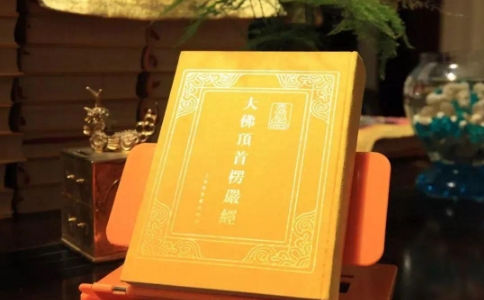
我个人学《法华经》有一段因缘,跟大家分享一下。我读佛学院的时候,其实我喜欢的是唯识学。我那个时候有听《法华经》,但是我最喜欢唯识。唯识的好处,它解释因果很清楚:这怎么回事?我今生没有造这个罪,为什么得这个果报?因为仓库里面有。
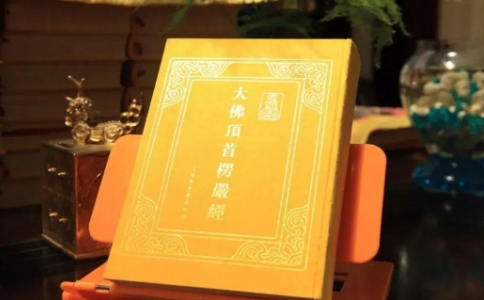
你要想学《楞严经》,放下识心,放下一切执著。就像一张白纸,原来什么都没有,你想怎么画就怎么画;如果你原来有些个形相,你画什么都画不成了。我们要学《楞严经》的时候,先把一些思虑、缘念——就是我们自己所有的一些想法——你都要放下,就像一张白纸似的无知。
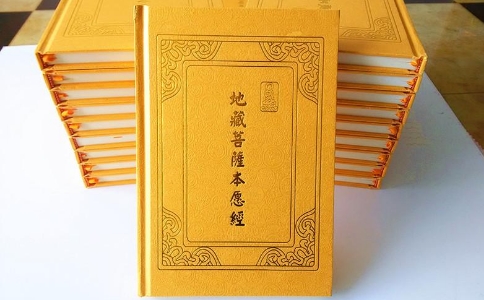
“檀”翻为中文是布施的意思,“六度”首先是布施、“尸罗”是持戒、“羼提”是忍辱、“毗离耶”是精进、禅定,最后第六度是般若。这六度是作为一个菩萨行成就佛果的六大科目,布施度悭贪、持戒度毁犯、精进度放逸、忍辱度嗔恨、禅定度散乱、智慧度愚痴。

居士问:师父,初学者读《地藏经》读第几品?我心里想读第九品的,读全文上班没时间,可以只读第九品吗?一如法师解答:《地藏经》是我们佛门的大孝之经,大乘的孝经,地藏菩萨是大乘的大孝之王,也是大愿之王,所以《地藏经》我们要多读。
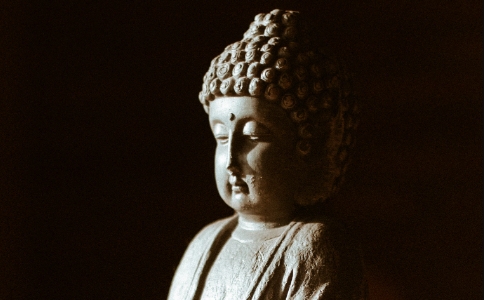
《地藏经》上说:只要在临终时听到佛名,就能得解脱。这句话看似简单,实则义理极其丰富。第一、能在临命终时,听闻到佛菩萨名的,都是福德因缘具足的人。有些老修行,到临命终时,反而业障现前,提不起佛号,甚至无缘听闻佛号,更何况平时不念佛的人,临命终时怎
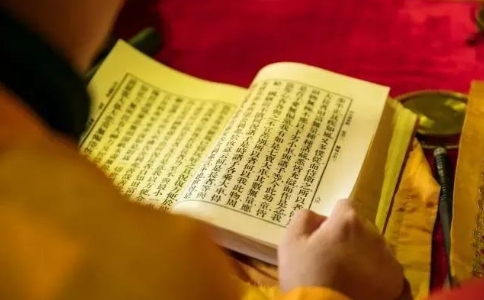
为什么读《地藏经》之前,要先读觉林菩萨偈颂?一切境界都是心变现的,无量地狱相是由心变化的。心变化的是没有的,但是一切众生受地狱苦,它又是实在的。那个实在是非有的,是心所变化的。谁心里又变化个地狱啊?那是你的心变化地狱,这种变化可多了。
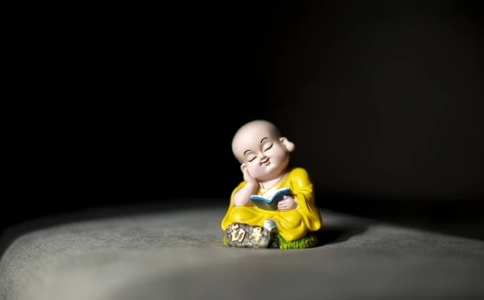
很多人因为在过去受到一些其它观念的影响——《地藏经》晚上不能念啊,念《地藏经》又出现这个那个、那个这个的现象啊,人很容易被暗示,这样一讲了,他马上就出现这种状态,所以说在念经的过程当中,就很容易出现那些幻觉。如果说有那么严重的问题出现,那佛陀首先在
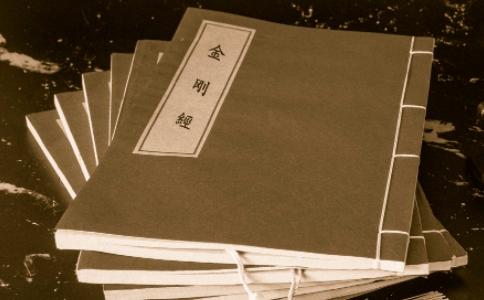
《金刚经》告诉我们的核心思想,其实就是什么?离相修行。前提是什么?你的知见不要搞成,《金刚经》讲一切都是梦幻泡影,是不是让我不修行?这是错误的。我们所有的修行都应该建立在离相的状态,而不是让你不修行。因为很多人就觉得,“师父,一切法都是梦幻泡影”,

《金刚经》的中心思想是:破除我执和法执。《金刚经》就是告诉我们,如何破除我执和法执,站在生死无常的角度去看待万物,就能用很智慧的方法去看待这个世界,这时内心升起的那种信念和过去完全不一样。看到自己身体,遇到各种事时,习惯以自我为中心思维。

“如来所说法,皆不可取、不可说,非法、非非法。”这里所谓不可取的意思,是说佛法都是一时对治的机宜方便,佛法就像药一样,众生有种种烦恼的病,应病与药,这个药就是法。病好了药就可以不用了。所以说病去则药除,不可执以为真实,都是暂时假借而用,不是究竟之法。
赞助、流通、见闻、随喜者、及皆悉回向尽法界、虚空界一切众生,依佛菩萨威德力、弘法功德力,普愿消除一切罪障,福慧具足,常得安乐,无绪病苦。欲行恶法,皆悉不成。所修善业,皆速成就。关闭一切诸恶趣门,开示人生涅槃正路。家门清吉,身心安康,先亡祖妣,历劫怨亲,俱蒙佛慈,获本妙心。兵戈永息,礼让兴行,人民安乐,天下太平。四恩总报,三有齐资,今生来世脱离一切外道天魔之缠缚,生生世世永离恶道,离一切苦得究竟乐,得遇佛菩萨、正法、清净善知识,临终无一切障碍而往生有缘之佛净土,同证究竟圆满之佛果。
版权归原影音公司所有,若侵犯你的权益,请通知我们,我们会及时删除侵权内容!